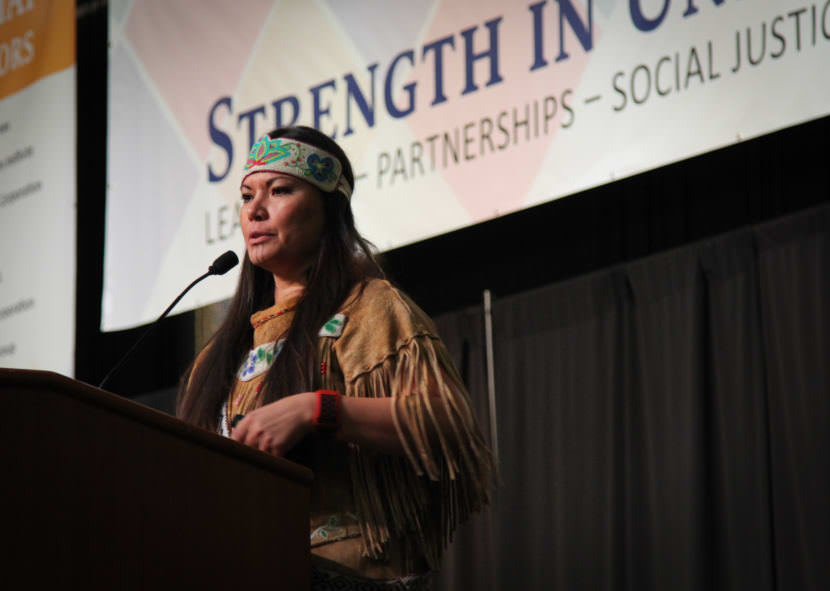On the first full day of the AFN convention, delegates heard an impassioned speech from Lt. Gov. Byron Mallott focused on the state’s fiscal situation.
Mallott was unsparing in his criticism of state lawmakers who have failed to pass a comprehensive fiscal solution to Alaska’s massive revenues gap, instead paying for dwindling government services by drawing on billions from savings.
“We hear people say, ‘No new taxes, no new taxes until somehow the government has right-sized itself,’” Mallott said. “We’re ready to do that, but let’s have a conversation, let’s not use it as an excuse to do nothing, to spend down $14 billion.”
Mallott dismissed arguments that per capita spending on services for Alaskans is higher than throughout the Lower 48, saying it is a flawed comparison given the state’s uniquely rural demographics. He rattled off essential services throughout Alaska that have declined to the point of failing many rural residents and indigenous communities, particularly education, infrastructure and criminal justice.
“We do not have the public safety services that we need,” Mallott said. “In rural Alaska, to have a young person be murdered and lay in a rock quarry covered by a tarp for four days because police could not get there in order to begin the process of trying to bring a perpetrator to justice… where is the bloated budget for that?”
The speech didn’t place explicit blame on either political party or legislative chamber, but set a severe tone just as lawmakers are heading to Juneau next week for a fourth special session that will deal in part with the fiscal situation. Both Mallott and Gov. Bill Walker received a warm response from the crowd of delegates.

The day’s other powerful speech came from the keynote – Sgt. Jody Potts, director of public safety for the Tanana Chiefs Conference. Dressed in full Gwich’in regalia, Potts recounted growing up in a modest dirt-floor hunting cabin in Eagle — and how pieces of that traditional lifestyle helped her heal after a family tragedy this year.
“In March my children lost their father to suicide. And in the first several months it was very hard, as you can imagine, getting through the fog of that grief,” Potts said.
Potts took months off work, spending time with her kids, hunting and visiting family. She gestured towards the convention’s theme on an overhead banner – “Strength in Unity”—and said that idea was an essential part of how she began to gradually enjoy life again.
“The greatest strength that we found was when we came together, me and my three children. We found strength in unity,” Potts said. “And I see that among our people. Everything we’ve gone through, we really have strength in unity, we have a joint story that needs to be told.”
The convention saw a recorded statement from Interior Secretary Ryan Zinke, who had to scrap a planned live video address in order to attend a funeral. Zinke said Alaska Natives have been fortunate under the Trump administration’s efforts to streamline regulations, advocate for veterans and protect the right to sell walrus ivory. He also said Alaska has scored “major victories” on the personnel side. AFN President Julie Kitka said the recent appointment of an Alaskan to a high-level position in the Interior department is evidence the Trump Administration has an interest in working with the Alaska Native community.
“One of the first significant outcome(s) of our work with the new Trump administration has been the nomination of Tara Sweeney to the high office of Assistant Secretary of Indian Affairs,” Zinke said.
Sweeney is the first Alaska Native woman to be put up for the position, and will go before the Senate for confirmation.
Ana Hoffman of the Yukon-Kuskokwim region was re-elected as an AFN co-chair, running for the two-year position unopposed.
Television coverage of both the AFN convention, as well as the Quyana cultural festivities, is on 360 North through Saturday.
